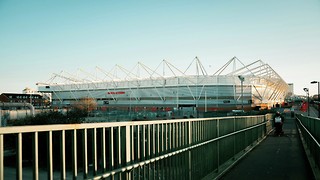Interview: Lord Geoffrey Howe
Olivia Crellin and Charlie Bell meet with Lord Howe to discuss recession, restraint and real people in politics. Olivia Crellin reports on their conversation

For many students who were merely a twinkle in their parents’ eye at the time, the Thatcherite era is little more than an echo of the current ‘age of austerity’ under a Conservative leadership. For Lord Geoffrey Howe, former Deputy Prime Minister, Conservative Chancellor and Foreign Secretary during Margaret Thatcher’s government and an alumnus of Trinity Hall, Cambridge, the comparisons are slightly more considered.
Howe, now a member of the House of Lords, was responsible for successfully reducing inflation during a recession in the early 80s with a policy of “pay as you spend not pay as you earn.” The indebtedness that George Osborne has inherited, Howe confesses, is “vastly greater”. “The figures are completely beyond my imagination,” he admits. Against all expectations, Howe brought down an inflation rate of 23% during his time in office as Chancellor. Although, ever modest, he explains that, “to some extent our task was easier because people understood more clearly what we were up to.”
Is opposition to the cuts a failure of PR then? “I don’t think that there’s all that much failure. There isn’t all that much to explain,” Howe adds opaquely. Perhaps that is where our problems lie. Not with the cuts themselves, about which “there is not much one can do” according to Howe, but the communication between politicians and the public. The number of people marching on parliament in the recent months that have failed to even contact their local MP before resorting to mass scale demonstrations is considerable.
There is certainly a disengagement with politics, or as Howe puts it, a lack of interest in the “day to day” issues. The last election saw a majority of the public sacrificing a loyalty to the ideology of a single party in favour of selfish one policy voting. An overwhelming number of students in Cambridge, as elsewhere in the UK, were swayed by Lib Dem promises to protect them from the introduction of tuition fees. It is no wonder, following the formation of a coalition and Nick Clegg’s failure to deliver such a package, that students feel both angry and stupid.
Of course part of this problem lies with the politicians themselves Howe asserts. “Democracy needs to be lead and not fed,” he told Andrew Neil on the BBC’s Straight Talk in 2007, and it is undeniable that political consensus between the major parties has tended to result in a jostling to give the public what they want. When this is not a possibility, as has been demonstrated with the recent cuts, relations turn sour.
When it comes to reading Howe’s own political allegiances it is difficult to decipher the combination of historical perspective and independent second chamber commentary. Although he appears to be impartial and above party politics Howe doesn’t skip a beat when we ask who is to blame for the current financial situation. “Gordon Brown” he answers. He does, however, generously concede that the rest of Parliament “failed to notice” the scale on which Brown was spending.
A workman-like and understated man in many ways, Howe is your typical politician but, despite his vast experience, he is without the air of ‘celebrity’ that most leaders of today cultivate. When Howe arrived in office in 1979 he was on first-name terms with all of those involved in the trade unions: relations that would prove useful in the coming years.
Perhaps unwittingly, Howe himself proposed a possible reason as to why we are now so disenchanted with our leaders: the decline of politicians with “non-political careers before entering parliament”. Howe was himself a lawyer and QC before coming to prominence in the House of Commons in the mid 1970s. “I’m dismayed”, he said. “Politics is much healthier if it’s got real people conducting it.” With that statement Howe seems also gently to identify the public’s cynicism with legislation and cuts that are being doled out by what many regard as a bunch of young inexperienced toffs.

This is part of the reason that Howe is such an advocate for the House of Lords. It’s a treasure trove of “speciality knowledge on almost everything”. A question on Spanish interference with aircraft in Gibraltar, for instance, prompts the former Chief of the Defence Staff, a previous Governor of Gibraltar and a peer who was a “former lighthouse keeper”, to declare knowledge on the topic. Howe’s excursions into delightfully quaint anecdote, which he has a carefully crafted habit of doing, illustrate the diverse range of expertise in the Second Chamber.
Perhaps another reason why Howe believes the economic situation he had to deal with is “easier” than that George Osborne is struggling with is that Thatcher’s government were wise in using politicians with a wealth of experience. Thatcher’s shadow cabinet included men “who had served in the Churchill cabinet, not just the Macmillan cabinet.” Cameron, despite having access to plenty of people “with longer memories”, is failing to consult them on anything but an “ad hoc basis.” To have a number of people around the table, not just Ken Clarke, “who can say ‘hang on, we’ve been here before’, could be quite useful” Howe archly remarks.
A “disturbing” sense of déjà-vu surrounds both the current financial situation and aspects of foreign policy for Howe. Howe was keen to stress the differences between the military aid Britain has given the Libyan rebels since March and the intervention of the UK in Iraq and Afghanistan. There is general support for the imposition of a no-fly zone in both Houses, Howe reports, as long as it is “limited and focused not on conquering Libya but on helping the Libyan people to achieve a victory for themselves.” Conscious of an American foreign policy of “‘We’ve gotta respond to this’, which is revenge, retaliation, and so on”, Howe considers the “Iraq exercise” to have been “completely without foundation” and is cautious of accepting the legitimacy of what is currently happening in Libya.
As Howe explains, quoting (as he did before the invasion of Iraq) Colin Powell’s retirement speech, when Powell left the Pentagon some years ago: “of all the manifestations of power, restraint impresses man the most.” The velvet glove that for so long sat on the hand of the Iron Lady, Howe’s traditional approach to politics is just that: refreshingly restrained.
For the adolescents of UK politics, the Camerons and the Cleggs, once the head rush of legislation is behind them perhaps they will finally get round to consulting their own party’s political history. Howe wishes quite emphatically not to have to repeat himself.
 Features / Beyond the porters’ lodge: is life better outside college?24 February 2026
Features / Beyond the porters’ lodge: is life better outside college?24 February 2026 Theatre / Footlights Spring Revue? Don’t Mind if I Do!25 February 2026
Theatre / Footlights Spring Revue? Don’t Mind if I Do!25 February 2026 News / Cambridge academics sign open letter criticising research funding changes22 February 2026
News / Cambridge academics sign open letter criticising research funding changes22 February 2026 News / Student and union protesters hold ‘Trans Liberation Solidarity Rally’ 24 February 2026
News / Student and union protesters hold ‘Trans Liberation Solidarity Rally’ 24 February 2026 Fashion / The evolution of the academic gown24 February 2026
Fashion / The evolution of the academic gown24 February 2026









